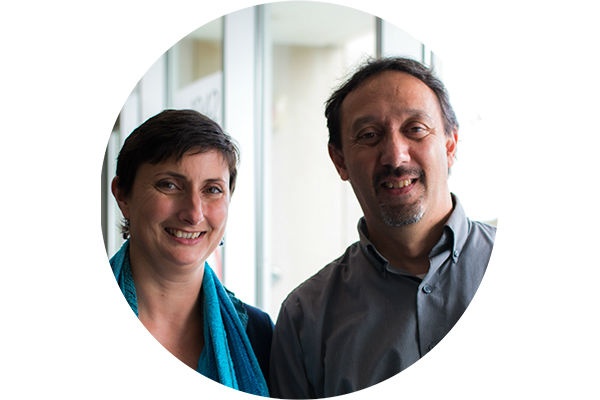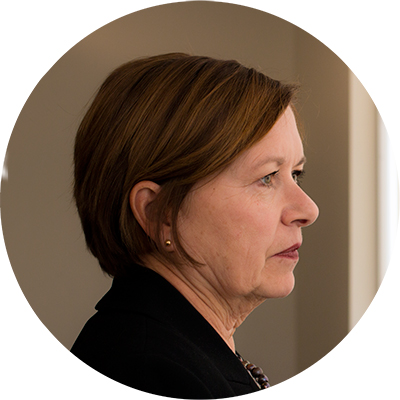The Faculty of Public Affairs’ commitment to research was on display as several faculty members were awarded Carleton University Research Prizes at the Passion for Research luncheon on October 5.
The prizes recognize efforts that go beyond the specific research programs of individual faculty. They are for activities and initiatives that support and enhance the vibrant research culture at Carleton as they build a broad and sustainable foundation that supports research excellence, student engagement, and Carleton’s impact on real-world issues.
“These researchers embody the Faculty’s mission to conduct groundbreaking research that contributes to better societies at home and abroad,” said Dean André Plourde of the Faculty of Public Affairs. “We are very fortunate to have them as colleagues and mentors.”
FPA researchers won three out of the four prizes awarded, including the Faculty-to-Faculty Mentoring prize, a Building Connections Award, and the Research and Academic Impact Award.
Building Connection Award: Migration and Diaspora Studies Steering Committee

Catherine Khordoc, the Interim Dean of FASS, and Jeff Sahadeo, Associate Director of EURUS.
As the world’s refugee population has reached crisis proportions, members of Carleton’s Migration and Diaspora Studies Steering Committee have been working with international colleagues to publicize and help address the plight of these people.
Most recently, the group hosted an international workshop for researchers and leaders in the migration and diaspora community entitled “Power and Influence in the Global Refugee Regime”. The workshop brought together a prominent group of scholars, practitioners and policy-makers to discuss strategies to improve the current refugee regime.
“One of the inspirations for this group was to combine research and advocacy on migration and diaspora issues,” says Jeff Sahadeo, the Associate Director of the Institute of European, Russian and Eurasian Studies (EURUS) and a member of the steering committee. “Carleton is an ideal location for this collaboration because we have so many people working on this—both on campus and in the national capital.”
The Migration and Diaspora Studies Steering Committee received the Building Connection Award, which is given to “an individual or a team who has made an outstanding contribution through a history of achieving exceptional success in building relationships and connections which have had a sustained impact both over time and across research programs.”
While the focus of the MDS initiative has been to build linkages across disciplines, the research interests of individual members of the Steering Committee range from the cultural consequences of globalization and the treatment of issues of personal and collective identity in relation to immigration, multiculturalism (or interculturalism), exile and integration in literature to global refugee policy, the role of international organizations in the management of migration and issues relating to citizenship, and integration in Canada and internationally.”
The group also maintains an active international listserv, which allows members to swap information on refugee sponsorships, country-by-country resources, and the latest news and research on the crisis.
“We are fortunate to have people who are dealing with this issue from all over the world, approaching it from all different angles,” says Professor Sahadeo, a political scientist who’s collaborated with both poets and economists. “This gives us a chance to learn and enrich each other. We have much more in common than we would think.”
Members of the committee include and Sarah Casteel, Howard Duncan, Martin Geiger, Catherine Khordoc, Daniel McNeil, James Milner, Daiva Stasiulis, Ming Tiampo, Christopher Worswick, and Jeff Sahadeo.
Research and Academic Impact Award: Susan Phillips, Professor, School of Public Policy and Administration (SPPA)

Professor Susan Phillips of the School of Public Policy and Administration.
Susan Phillips had a broad vision for her tenure as the Director of the School of Public Policy and Administration—and the changes she implemented from 2005-2014 have changed the face of Carleton University’s education in this field.
Her vision included new Master’s and Diploma programs in Philanthropy and Nonprofit Leadership, a Master in Sustainable Energy Policy in cooperation with the School of Engineering and Design, the beginnings of the Master and Diploma programs in Indigenous Policy Administration, and a new curriculum for the Master of Public Administration.
“We did a lot of institution building during that time as we created new programs that really served a community need,” says Professor Phillips. “It started with having supportive colleagues who wanted to make a difference, and that’s where Carleton’s strengths lie. This is where Carleton started.”
As a result of these efforts, Susan Phillips was awarded the Carleton University Research and Academic Impact Award, which recognizes “outstanding contributions as an all-round citizen of Carleton in the domains of research, teaching, and service by playing a notable role in building institutional strengths and outreach, and making a difference for Carleton’s leadership as a comprehensive university.”
Professor Phillips is particularly proud of her work with the Philanthropy and Nonprofit Leadership program, which was an outgrowth of the decades of research she conducted in the nonprofit sector.
“The nonprofit sector is huge, but there was no formal education for the leaders of these organizations,” says Professor Phillips. “As soon as we introduced it, it was fully subscribed. This program is building leadership capacity and changing practice in a growing field.”
Professor Phillips’ research has also focused on a comparative analysis of the policy, regulatory and financing frameworks that enable or constrain the work of civil society organizations and philanthropy, and the implications for public management.
She is currently co-editing the first international handbook on philanthropy, the Routledge Companion to Philanthropy.
Faculty to Faculty Mentoring Award: Steve Saideman, Associate Professor, Norman Paterson School of International Affairs (NPSIA)

Professor Steve Saideman is the Paterson Chair of International Affairs in NPSIA.
When new faculty members arrive at NPSIA, one of their first stops is to see Steve Saideman, NPSIA’s Research Mentor and unofficial tour guide through the university’s complex bureaucracy.
“New faculty members all have the same questions as they try to navigate the university,” says Professor Saideman, who is this year’s recipient of the CU Research Faculty-to-Faculty Mentoring Award. “I help them find others who are facing the same issues and we bounce ideas off each other. It helps them to talk to another person going through it.”
The Faculty-to-Faculty Mentoring Award recognizes “outstanding contributions as a role model of research excellence and integrity and for mentoring colleagues and junior faculty to achieve their aspirations in research”.
Professor Saideman undoubtedly serves as a role model of research excellence. In the past five years alone, Professor Saideman has published two books with internationally-recognized and highly prestigious academic presses, ten peer reviewed articles and book chapters, and give over 40 invited presentations to academic audiences. This enables him to help colleagues through the many challenges involving research: choosing a project, finding funding, and finding the time to work on it.
“I like to work in teams so we create cohorts of people applying for similar grants at the same time and we read each other’s proposals,” explains Saideman. But the conversations go beyond that, to balancing the research-classroom workload and choosing the right research project.
Saideman says that team approach suits NPSIA, which has a relatively small, close-knit faculty.
“Carleton University has some unique bureaucratic challenges. I find it easier for new faculty to work on the adjustment together.”
The Faculty-to-Faculty Mentoring and Building Connections Awards are sponsored by the Vice-President (Research and International), and the Research and Academic Impact Award is jointly sponsored by the VPRI and the Provost and Vice-President (Academic).
Monday, October 5, 2015 in Groundbreaking Research, News
Share: Twitter, Facebook



